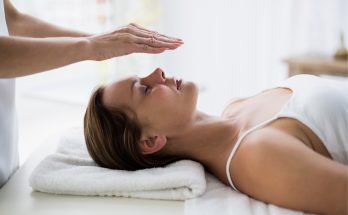It’s no secret that women attempt to do it all. Although we managed to get through the no-sleep infant and toddler years as new moms or climbed the company ladder to the top, at midlife we may find ourselves juggling even more as our aging parents need help and our own health may require more time and effort.
This is when it hits: Burnout.
Putting others ahead of ourselves during midlife has been shown to increase the risk of cardiovascular disease and Type 2 diabetes, according to the American Heart Association. Stress may lead to sleep problems, lower immunity, anxiety and depression, with women twice as likely to suffer from depression, stress and anxiety as men, according to the American Psychological Association. With our go-go-go attitudes, how do we prevent burnout and enjoy what we do?
1. Exercise
It may sound counterproductive to suggest exercise when you’re so busy that you barely have time to get to the salon for a haircut, but it is the best thing to make time to do. You’ve heard it all before but studies have proven exercise will boost your physical and emotional health, improve your immune system so you won’t get sick as often, provide feel-good endorphins to help combat any anxiety and stress, and increase cardiovascular health.
If you simply cannot find 30 minutes of recommended exercise in each day, try mini-workouts instead. Schedule two 15-minute breaks in your day to go for a quick walk and get some air. Start your morning with a quick 10- to 15-minute series of strength-training moves, such as squats, lunges and triceps dips. Before you know it, you’ll start feeling better and looking for ways to include more fitness into your schedule.
2. Get Your Sleep
We aren’t saying you must get eight hours of sleep each night, but we are recommending you get into a rhythm of good sleep habits. The National Heart, Lung and Blood Institute credits good sleep with lowering blood pressure and risk of diabetes, heart disease and stroke. It will also help your perform during the day with more clarity and improve your problem-solving skills.
The National Sleep Foundation finds the No. 1 disturbance of sleep is use of electronic devices before bed. The artificial light emitted by your laptop, smartphone and your TV can alter your body’s circadian rhythm and interfere with sleep. Ban these devices from your bedroom.
3. Schedule “Me” Time
Literally put yourself on your schedule and block out time daily or weekly to ensure the things you want and need to do can get done—just as you are doing for others. Add relaxation to your schedule in the form of a massage, a bike ride, a little shopping—whatever you need to give you a break and some time for yourself. While you’re at it, schedule work and life, as well. Much of our stress comes from feeling unorganized, so get organized. Adjust your life by creating a calendar and sticking to it—use it when someone asks you to do something. When you are busy, just say “no.”



